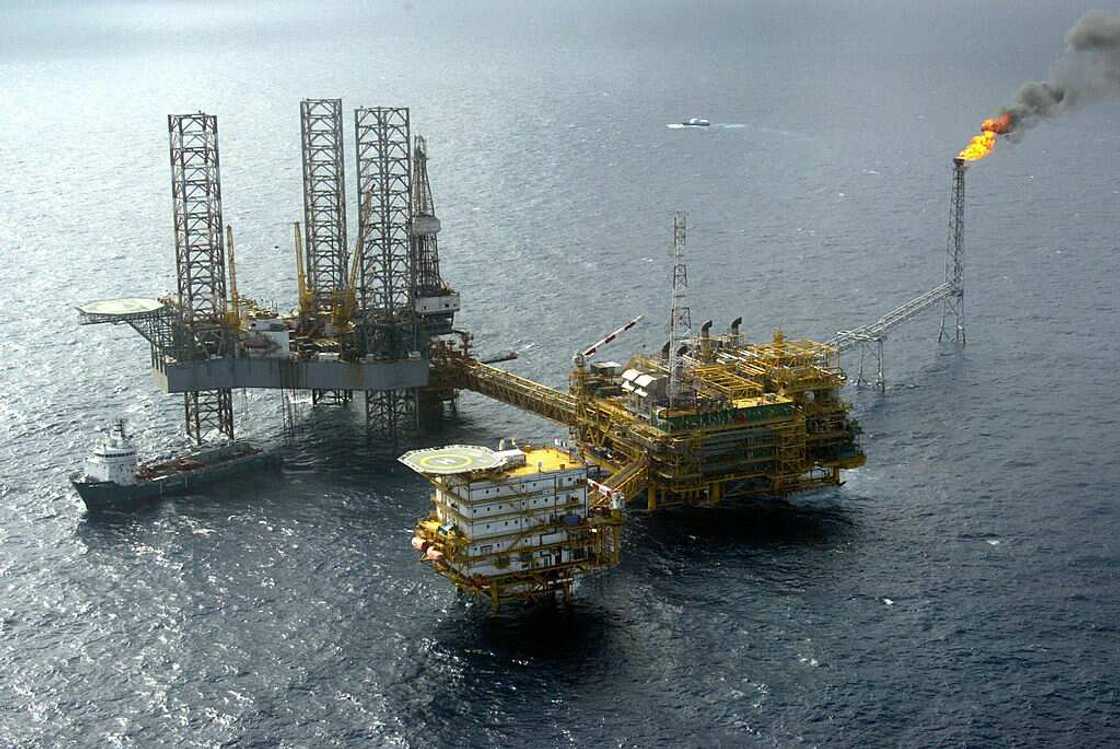EU ban on Russian Oil: Data Shows Nigerian Economy is more Likely to Suffer than Gain as oil Prices Soar
- The European Union has decided to place a ban on Russian oil after months of negotiation and delays
- The ban is expected to increase oil prices as the 27 countries which reach the agreement will have to look for alternatives
- Nigeria is one of the top producers of oil but data shows the coming weeks could bring more pains than gain
PAY ATTENTION: Click “See First” under the “Following” tab to see Legit.ng News on your Facebook News Feed!
After two days of deliberation, the European Union (EU) countries reached an agreement to ban 90 per cent of Russian energy imports by the end of the year over the invasion of Ukraine
This follows an outcry by Ukraine's President Volodymyr Zelenskyy that despite various sanctions Russia was still making over $1 billion.
Since the start of the war in February, the 27-nation organisation has spent weeks haggling over a complete ban on Russian oil but encountered stubborn resistance from Hungary as well as Slovakia and the Czech Republic.

Source: Getty Images
Hungarian Prime Minister, Viktor Orban, in his argument as reported by Reuters said an embargo would destroy his country’s economy.
PAY ATTENTION: Share your outstanding story with our editors! Please reach us through info@corp.legit.ng!
However, after deliberation, the EU finally agreed on a compromise deal on Tuesday, 31 May 2022 that will allow landlocks countries to still buy from Russia.
Oil prices soar
Russia is the world's largest gas exporter and is also ranked among the top producers of oil. With Europe now looking for alternatives, oil prices is once again on the rise.
Data from Bloomberg shows that the Brent crude which is the international benchmark price for Nigeria oil after the ban was announced rose to $122.80 per barrel.
Big headache for Nigeria
While it is expected that the rise in oil prices is a blessing, Nigeria’s unpreparedness for what is happening in the global oil space could bring more pain to the country.
Despite Nigeria being an oil-producing country, it relies heavily on the importation of fuel exposing the country to oil price fluctuations.
Just recently when crude oil price crossed $120 per barrel in March, Nigeria suffered a nationwide scarcity occasioned by the importation of adulterated fuel.
In fact, data from the Nigerian National Petroleum Corporation (NNPC) reveal that an average of N7.92 billion per day, or N245.77 billion, was paid to keep the country's pump price at N168 per litre in March, out of $88.93 million (N36.91bn) collected from crude oil export without gas.
No more free oil money to states
Despite OPEC's permission of 1.7 million barrels per day, Nigeria's oil output has averaged 1.3 million barrels per day since the beginning of the year.
Because of this strain, NNPC has been struggling to remit any funds to the federal account for onward distribution to states and local governments, since the majority of revenues earned have been used to make subsidy payments.
CBN governor provides insight of what lies ahead
Godwin Emefiele, Governor of the Central Bank of Nigeria at the last Monetary Policy Meeting (MPC) revealed how Nigeria’s reserves were depleting due to the high cost of importing fuel.
He said,
“Gross external reserves declined moderately to US$38.36 billion as at May 19th, 2022 from US$39.28 billion at end-March 2022. This was attributed to the weak accretion to the reserves from exports and the high cost of importation of refined petroleum products.”
Nigerians will be hoping that this time, the federal government would be prepared to mitigate any negative development the higher price could bring to the economy.
Remittances to FG continue to decline
Meanwhile, Legit.ng reported that as the Nigerian government thinks of removing petrol subsidy next year, the country’s National Petroleum Company (NNPC) has continued to remit less amount of money to the federation account.
The NNPC remitted the sum of N10.54 billion to the Federation Account Allocation Committee (FAAC) in November 2021 from the proceeds of sales of crude oil and gas in October.
It gave this account during a presentation to FAAC for the month of December 2021, a report by Nairametrics says.
Source: Legit.ng


